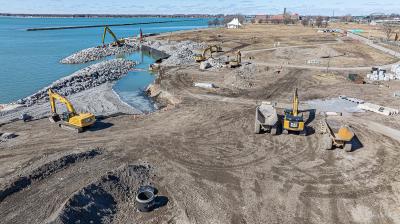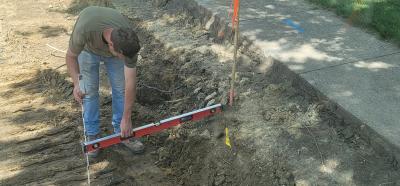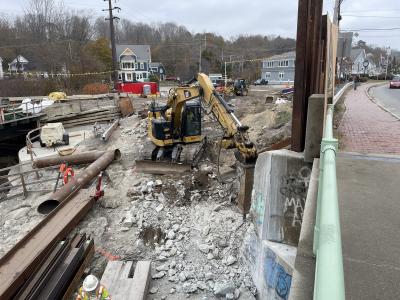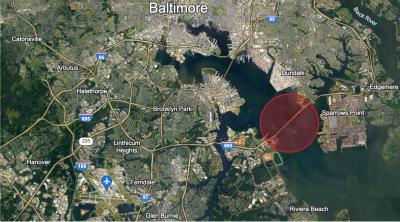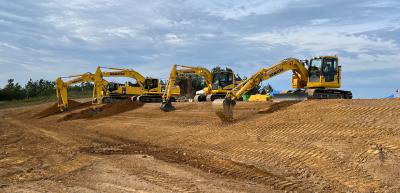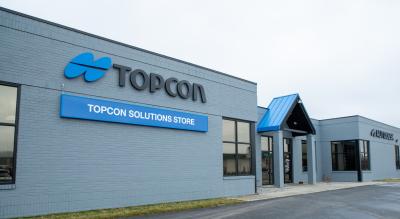They come from broken relationships, some beaten by spouses, running away, suffering disease, shunned, lost, and afraid, out of work, out of luck, out of places to go.
Through the woods of Orland, Maine, a very rustic town 18 miles southeast of Bangor, many of them find H.O.M.E. — (Homeworkers Organized for More Employment), the low-income housing cooperative founded by a former Carmelite nun.
In 1970, Sister Lucy Poulin created H.O.M.E., which serves a community of as many as 300 at a time, a co-op offering jobs, food, temporary shelter, education and home ownership to the rural poor for the past 39 years.
The organization was founded on the mantra of Abbe Pierre, the inspirational French humanitarian: “To serve those who suffer most.”
Poulin, now 69, who is still called Sister Lucy by those who know and love her, despite having left the Carmelite Order of Nuns decades ago, grew up the eighth of 11 children in a poor family in Fairfield Center, Maine.
Sister Lucy grew up on a farm, and the lessons learned there have lasted a lifetime. “We needed to have gardens to survive. We were 11 children. We learned an awful lot from that,” said Sister Lucy. “Waking up early to do chores, hauling water and feeding cows, animals. Chopping wood for our heat. We learned to survive from hard labor. This is God’s work, especially when you use your hands to do it.”
She worked at a chicken factory and a paper mill and tended her mother’s farm from the age of 13. In 1957, she joined a Carmelite order. Seven years later, she was assigned by the order to a Carmelite group in Bucksport, Maine.
From Crafts to Shelters
Serving the disadvantaged with no training or college degree, she championed what she calls, “Self-development economics.” Thirteen years after arriving in Bucksport, she created H.O.M.E. as a co-op to help local home crafters sell their goods.
Now located on 12 acres of land, the cooperative has expanded into a free health clinic, a soup kitchen, a food bank, five homeless shelters (three in Orland, one in Bucksport and the Emmaus Shelter in Ellsworth) and other buildings, including a learning center offering day care, literacy and G.E.D. training. There are shops, a greenhouse and a farmer’s market, a sawmill and a shingle mill, and a service that delivers firewood to the elderly.
In 1994, the state of Maine granted H.O.M.E. a large land grant for low-income housing throughout the state. As a result, H.O.M.E. has created a land trust of 700 acres for the construction of such houses. Dozens of homes have been built with the invaluable assistance of hundreds of volunteers, staff and local contractors.
An Unusual Contractor
“The contractor who has been most helpful has been Robert Wardwell of Bucksport,” said Sister Lucy of the owner of Wardwell and Sons. “On some of our builds, he’s lent us equipment. He’d bring us an excavator up here and let us use it. He’s come on a moment’s notice, if there are emergencies. He’s been very understanding, when bills have been late for a year or so. He’s really unusual.”
Wardwell and his men have done much of the site work and put many of the slabs down on the shelters and houses put up at H.O.M.E.
“We’ve built about 50 houses. I don’t know how many of them Mr. Wardwell has done. We’ve built a village here, a complex, with contractors and a lot of volunteers. Most are high school and college students, mostly from the northeast,” said Sister Lucy.
In June, 140 students and adults came to Orland from Ridgefield Congregational Church, in Ridgefield, Conn. — most of them seniors from that town’s high school who make building an annual house for H.O.M.E. the central part of their senior project each summer.
The houses are then sold to those disadvantaged who, otherwise, wouldn’t be able to afford them.
Among the annual volunteers is R & D Construction, owned by the husband and wife team of Robert and Diane Nichols of Barrington, R.I. They went north with 23 volunteers from St. Luke’s Church, also in Barrington.
The couple volunteered in Maine in 2007, rebuilding and expanding a section of the original farmhouse that had burned down earlier that year, a major project completed this year. In 2008, the contracting couple completed the rafters and the plywood on one of the low-income homes.
“We just wanted to see if we could help out,” said Diane Nichols. “It was our vacation. The people help each other up there and I think it’s a really great way of life.”
Borrowed Labor, Borrowed Tools
The labor is borrowed and so are many of the tools. The co-op isn’t afraid to ask, given the need to finish the work.
“We have to borrow excavators, all of the bigger equipment. In fact, if anyone has old equipment, we need a forklift to load logs on our sawmill,” said Sister Lucy. Which model? “People who have them usually know,” she laughed. “We don’t have small logs. It’s the big heavy ones [excavators] that load logs.”
Sister Lucy is assisted by another former nun, Sister Marie Ahern, Bonnie Williams, Ellen Moore and a staff of 35 to 40, many of whom were unemployed and desperately needed work.
“Most of our people who come here have been homeless or out of work. So, our staff is made of people who really need the jobs. We pay them at least minimum wage,” said Sister Lucy. “The money we earn from selling lumber, shingles, all sorts of crafts, Christmas wreaths and other arts and crafts, goes to support the work that we do.”
There is an annual direct mail appeal and two big events in summer — a fair and an auction — to augment fundraising. Occupancy at the shelters varies from time to time, but there could be as many as 80 being housed and the annual budget can rise to more than $100,000, including energy for electricity, heat, food and transportation.
Although the group gets some assistance from the Maine State Housing Association, donations are its chief source of shelter revenue.
As for the hammers, nails, saws, and all the smaller tools necessary to put up houses, Sister Lucy added, “We buy tools and some get donated. Some volunteer groups who come to help us, sometimes they leave us their tools.”
Waste Not, Want Not
The group wastes nothing and this philosophy comes from the Emmaus movement of which H.O.M.E. is a part. Emmaus is a Christian organization that believes in getting by on what one makes for himself or herself and using things that others do not want to use anymore. Nothing is ever discarded or thrown out. Almost everything built at the site is made of scrap or recycled material. Thus, fancy administration buildings are considered unnecessary for daily life.
Volunteers who drive hours from all over New England to do so each summer stand in awe and marvel at the farmhouses Sister Lucy and another sister built decades ago with their own hands by the lake that cannot be accessed by any roads.
David Renner, who leads the home mission team from St. Luke’s Church in Barrington, R.I., had the opportunity to visit H.O.M.E. in 2005.
“As soon as I spent the weekend there, I realized this would be a wonderful opportunity for St. Luke’s to start a mission at H.O.M.E.,” said Renner. “It became a reality in 2007 when we took our first mission team of 30 people, half youth, half adults.
“Over the past few years, I’ve become very close to H.O.M.E. and the three ladies who run the mission there,” he added. “I love listening to their stories, especially when they were much younger and they would use a team of horses to drag logs from their 400-acre forest. These logs would then be milled into the lumber that built many of the present structures.
“The one structure that really impressed me was a cute little cabin on the lake, which is not accessible for vehicles,” said Renner. “One night, I said, ’How in the world did you ever get the materials down that steep hill, through the rocks, through the trees, to build this house?’ and very smugly, they said, ’One board at a time.’”
“Having no power down there, they used all handsaws and chain saws,” added Renner, shaking his head.
“I love construction equipment. I love the work we can do [with it]. Do you know that we grade our own road with our tractor? It’s too light, it’s a farm tractor, but it does the work. And we chip our own brush,” she added. “We like to do that.”
With a hectic schedule, Sister Lucy said she would continue this work, not because it is work, but because it is her life.
As she says to all: “I gather my strength from the life I lead. It’s a privilege to live with extraordinarily good people, to plant gardens and build homes and teach others how to live on a farm. Farm life gives life to everyone. St. Francis emphasized a simple life, the wonder of animals, and the acceptance and welcoming of everyone. And, again, we build on that.”
Beyond donations, H.O.M.E. is always looking for used pick-up trucks, used forklifts, a log-loading excavator to help the H.O.M.E. sawmill, or contracting volunteers. Anyone interested in donating money, equipment or services, call 207/469-7961 or visit www.homecoop.net. CEG
Today's top stories



